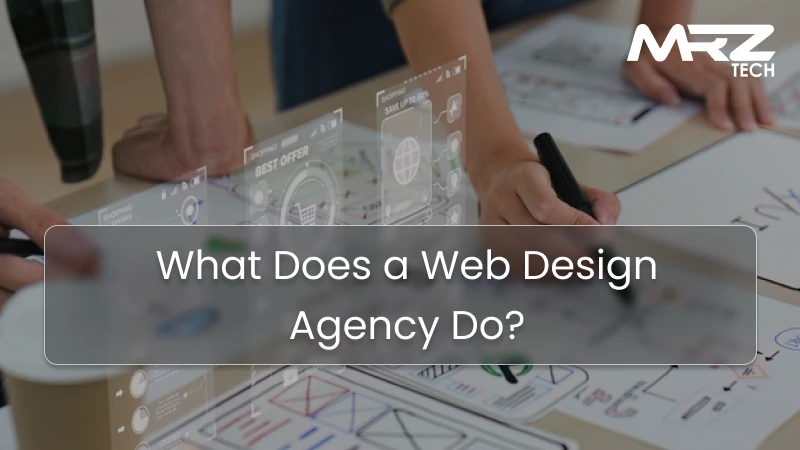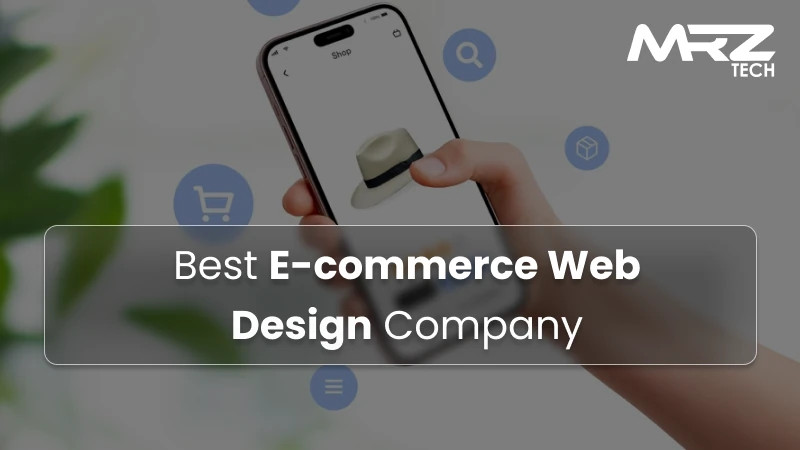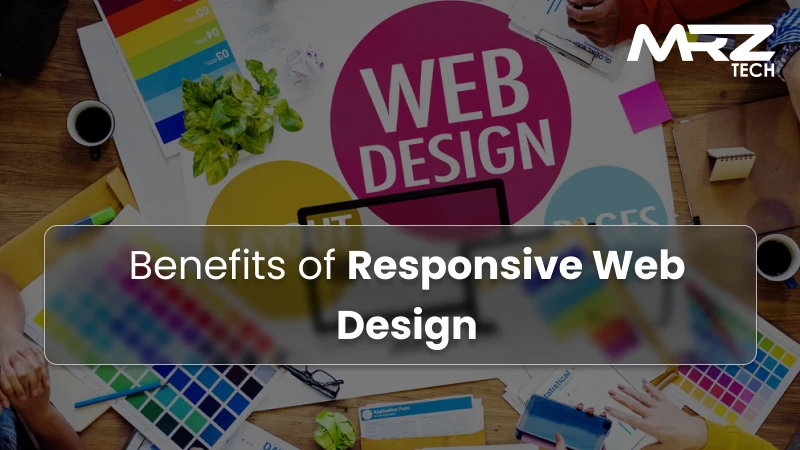Your website is often the first impression customers have of your business. It’s your digital storefront, sales representative, and customer service portal all rolled into one.
But unless you’re a professional designer or developer, creating a website that looks great, functions smoothly, and performs well in search engines can be overwhelming. That’s where a web design agency comes in.
If you’ve ever wondered, “What does a web design agency do?” this guide breaks it all down. We’ll walk through the services they provide, their responsibilities, how they work with clients, and why hiring one can be a smart investment for your business.
Key Takeaways:
- A web design agency creates, develops, and maintains professional websites tailored to your business goals.
- Core services include custom design, website development, responsive and mobile-friendly layouts, and UI/UX design.
- Many agencies also offer extended services like SEO optimization, hosting, website maintenance, and analytics.
- A good agency is more than just a vendor; it’s a long-term partner in your digital growth.
What Is a Web Design Agency?
At its core, a web design agency is a team of professionals who specialize in building websites that combine visual appeal, functionality, and business strategy. They typically consist of designers, developers, project managers, and sometimes marketers or SEO specialists. Unlike a freelance designer who may focus only on visuals or a developer who only handles code, a web design agency covers the entire spectrum of website creation.
Think of it this way: freelancers can be great for small tasks, but an agency gives you a coordinated team that handles everything from planning to launch and beyond. In-house teams are another option, but they often require more resources and hiring, which many small and midsize businesses can’t afford.
Core Services Offered by a Web Design Agency
Custom Website Design
A web design agency begins with design. This isn’t just about choosing colors and fonts. Agencies create visual branding that matches your business identity and resonates with your target audience. They design layouts, imagery, and style guides that reflect your brand’s personality while also being user-friendly.
Website Development
Once the design is approved, developers bring it to life. This involves coding the website, setting up a content management system (like WordPress, Shopify, or a custom CMS), and making sure everything works seamlessly. Development covers both front-end (what users see) and back-end (the server, database, and functionality).
Responsive and Mobile-Friendly Design
With more than half of all web traffic now coming from mobile devices, responsive design is non-negotiable. Agencies ensure that websites look and perform well on smartphones, tablets, and desktops alike. A responsive website automatically adjusts its layout, images, and features to fit any screen size.
UI/UX Design
User interface (UI) and user experience (UX) design focus on making websites easy to navigate and enjoyable to use. Agencies often create wireframes, prototypes, and conduct usability tests to refine the experience. The goal is to reduce friction, guide visitors smoothly through the site, and ultimately drive conversions.
Extended Services Agencies Often Provide
SEO Optimization
Building a website is only half the battle. It also needs to be found by search engines. Many web design agencies offer on-page SEO services such as optimizing site speed, structuring URLs, adding metadata, and making content easy for Google to crawl. While not all agencies offer full-scale SEO campaigns, they often set up the foundation for your future marketing efforts.
Website Maintenance and Support
Once the design is approved, developers bring it to life. This involves coding the website, setting up a content management system (like WordPress, Shopify, or a custom CMS), and making sure everything works seamlessly. Development covers both front-end (what users see) and back-end (the server, database, and functionality).
Hosting and Domain Management
Some agencies also handle the technical side of hosting your website and managing your domain. While not always included, this can be a convenient add-on for businesses that don’t want to juggle multiple vendors.
Analytics and Conversion Optimization
Beyond design and development, many agencies help track your site’s performance. They integrate tools like Google Analytics, heatmaps, and conversion tracking so you can see what’s working and what isn’t. They may also suggest tweaks to improve user journeys and increase leads or sales.
How a Web Design Agency Works With Clients?
The relationship between a business and a web design agency is collaborative. Here’s how the typical process works:
- Discovery Phase: The agency meets with you to understand your goals, target audience, brand identity, and competitors. They may ask questions like: What actions do you want users to take? Who is your ideal customer? What problems should your site solve?
- Design and Development: Based on this input, the agency creates initial designs (mockups or wireframes). Once approved, development begins. Throughout this stage, they’ll likely schedule regular check-ins for feedback.
- Testing: Before launch, the website undergoes rigorous testing to check responsiveness, browser compatibility, and functionality.
- Launch: The site goes live after final approval. The agency ensures everything works smoothly during the transition.
- Post-Launch Support: A good agency doesn’t disappear after launch. They provide ongoing support, updates, and sometimes training so your team can manage the site’s content.
Why Businesses Hire a Web Design Agency?
There are several reasons businesses choose to hire agencies rather than doing it themselves or using DIY website builders:
- Expertise: Agencies bring a full team of professionals with specialized skills.
- Efficiency: They streamline the process and handle all the technical details.
- Scalability: Agencies can adapt as your business grows, adding features or scaling infrastructure.
- ROI: A well-designed, SEO-friendly site drives traffic, generates leads, and increases revenue.
In short, hiring a web design agency can save time, reduce stress, and produce a website that actually works as a business tool rather than just a digital placeholder.
How Much Do Web Design Agencies Cost?
Pricing varies widely depending on the agency’s experience, your project’s complexity, and the scope of services. Common pricing models include:
- Project-based: A flat fee for a specific website build.
- Hourly: Rates can range from $75 to $200 per hour depending on expertise.
- Retainers: Ongoing monthly fees for maintenance and support.
Factors affecting cost include the number of pages, custom features (e-commerce, booking systems, integrations), and whether you need ongoing marketing support. While DIY builders might cost less upfront, an agency-built site typically pays off through better performance and conversions.
Red Flags to Watch Out For
Not all web design agencies are created equal. Here are a few red flags to keep in mind when choosing one:
- Unrealistic promises like “We’ll get you to #1 on Google in a week.”
- No portfolio or case studies to show past work.
- Poor communication or lack of transparency about process and costs.
It’s important to vet agencies carefully, check reviews, and ask for references before committing.
FAQs About Web Design Agencies
Do web design agencies also handle content creation?
Some agencies offer copywriting and content strategy, while others expect you to provide content. Ask upfront if this is included.
How long does it take to build a website?
Timelines vary, but most projects take 6–12 weeks depending on scope. Larger or more complex sites may take several months.
Can a web design agency redesign an existing site?
Yes, many agencies specialize in redesigning outdated sites to modern standards while improving usability and SEO.
Do I need to hire a separate SEO company?
It depends. Many agencies handle the technical aspects of SEO but may not offer ongoing content or link-building strategies. For full-scale SEO, you might need a dedicated agency.
Will I own my website?
A reputable agency ensures you retain ownership of your site, content, and domain. Always confirm this before signing a contract.




